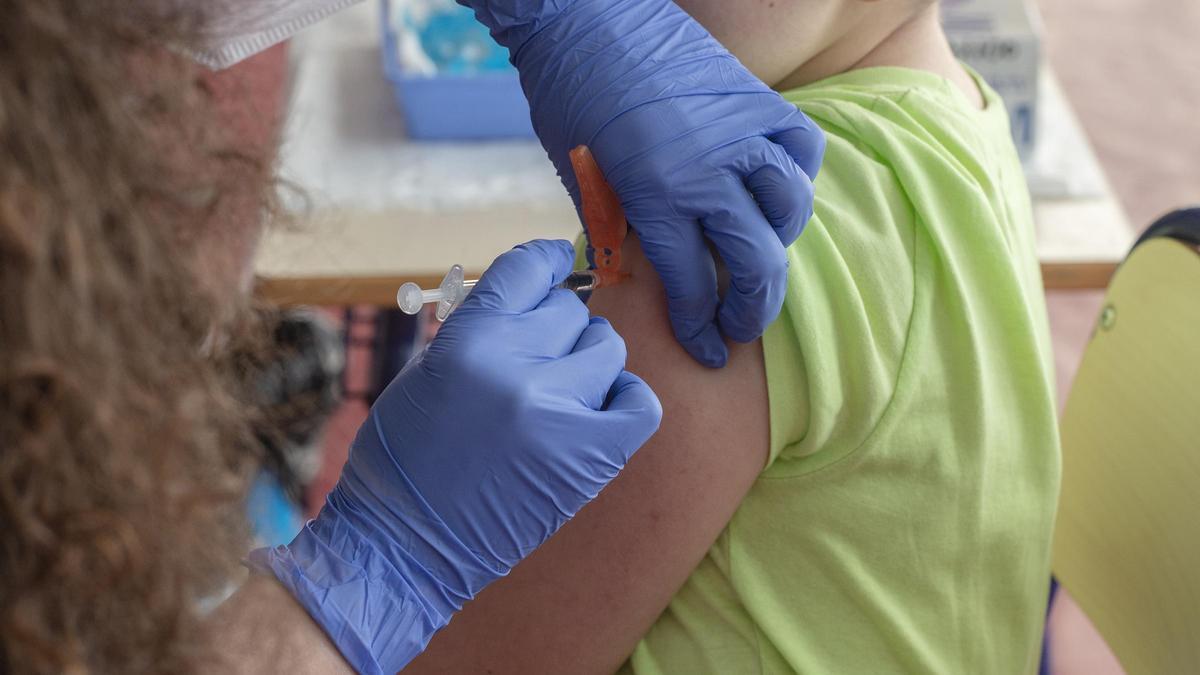PNEUMONIA | Pneumococcal cases rise to levels exceeding pre-pandemic levels

A team from the Pneumococcal Reference Laboratory of the National Microbiology Center of the Carlos III Institute of Health (ISCIII), which depends on the Ministry of Science, Innovation and Universities, has published a study that analyses the situation of invasive pneumococcal disease in Spain. between 2019 and 2023 among the pediatric and adult population, highlighting the impact that the coronavirus pandemic has had.
Work published in the journal Infection log, shows that the use of non-pharmacological measures for example, the use of masks, hand washing, isolation, and social distancing caused a “significant decline” in pneumococcal cases in the first two years of the pandemic. However, after these measures were lifted and relaxed, pneumococcal infections returned and are now “even higher than before the pandemic.”
Various hospitals
The group responsible for the work is led by a CNM-ISCIII researcher. Jose Yuste and Julio Sempere, Covadonga Pérez-García, Samantha Hita, Aida Úbeda, Erick Joan Vidal, Joaquín Llorente and Mirian Domènech from the Institute’s Pneumococcal Reference Laboratory are also participating.
In addition, the respiratory diseases departments (CIBERES) and Epidemiology and Public Health (CIBERESP) CIBER-ISCIII, General Directorate of Public Health of the Ministry of Healthand various Spanish universities and hospitals.
Between children
Among the serotypes that increased the mostdescribes the work, discovered serotype 3, which is among those associated with higher mortality and which mainly affects the population under 5 years of age and people adults over 65 years of age. Also highlighted is the presence of serotype 4, associated with infections in young people. On the other hand, serotype 24F in the pediatric population, and serotype 8 in the adult population also continue to play an important role in morbidity.
If we talk about multi-resistant invasive strainsIt has been established that “Streptococcus pneumoniae” or “pneumococcus” is the main cause of community-acquired pneumonia of bacterial etiology, as well as sepsis and meningitis. The study, conducted by ISCIII, confirms the rise in cases of the disease caused by invasive strains, some of which are associated with high levels of antibiotic resistance, representing a “major public health concern.”
“Map” of the disease
In this sense, the same research group already noted in 2022 in a study published in Lancet Microbeabout the possible increase in cases due to resistant strains early in the pandemic. In addition, another previous study published in Clinical infectious diseases Data from 2009 to 2019 made it possible to create a “map” of invasive pneumococcal disease, which also indicated an increase in cases of the disease.
The team led by Dr. Yuste concludes that the use of new conjugate vaccines with a broader spectrum of protection and/or immunogenicity than those previously available and recently authorized in Spain could help prevent many of these cases. including newly emerging serotypes.
ISCIII researcher remembers that in the adult populationpneumococcal vaccination is not seasonal and can therefore be administered at any time of year; Unlike flu vaccines, which are modified each year and must be administered annually, the existing pneumococcal vaccine is usually administered only once in a lifetime.
The study also analyzed the impact that new, recently approved conjugate vaccines, as well as vaccines in clinical development, might have in preventing the emergence of new emerging serotypes. after the covid health crisis.
